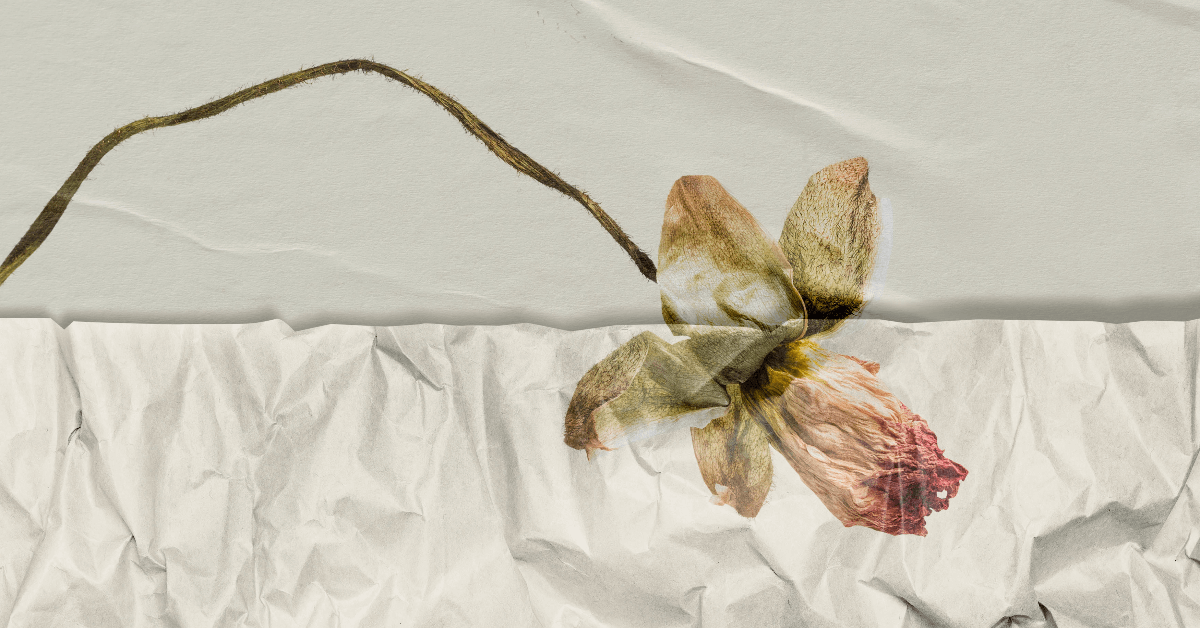The Oak Tree Poem by John Ray Ryder Jr
The Oak Tree poem talks about tapping into our inner strength and resilience that keeps us centered during turbulent times.

This poem is a simple piece of literature that asks us to pause and consider our own lives as well as the lives we are modeling for the next generation. It is a wonderful poem to share with people who are going through challenging times, a potion of poetic motivation that we all need in our day-to-day lives.
The Oak Tree Poem by John Ray Ryder Jr
A mighty wind blew night and day
It stole the oak tree's leaves away
Then snapped its boughs and pulled its bark
Until the oak was tired and stark
But still the oak tree held its ground
While other trees fell all around
The weary wind gave up and spoke,
"How can you still be standing Oak?"
The oak tree said, "I know that you
Can break each branch of mine in two
Carry every leaf away
Shake my limbs, and make me sway.
But I have roots stretched in the earth
Growing stronger since my birth
You'll never touch them, for you see
They are the deepest part of me.
Until today, I wasn't sure
Of just how much I could endure
But now I have found, with thanks to you
I'm stronger than I ever knew."
About the Poet
Johnny Ray Ryder was born in Orange County, Texas in the year 1948. Johnny Ryder was married to Aline (Marcontell) Ryder on March 7, 1966. The poem reflects the sapience of the poet that can be achieved only through maturity of age.
“In the presence of nature, a wild delight runs through the man, in spite of real sorrows. Nature says, — he is my creature, and maugre all his impertinent griefs, he shall be glad with me”
― Ralph Waldo Emerson
About the Poem
The Oak Tree Poem is a beautiful literary treasure that initially sets off a tone of affinity towards nature. The thought casually transcends into a metaphorical comparison held from the point of view of an oak tree. The oak tree is a symbol of human life. The Oak Tree is also a symbol of strength and resilience in many cultures.
The life that we live gradually takes a toll on our body and spirit. We all need external motivation from time to time. This poem helps us to withstand the criticism that fate throws our way and continue to appear optimistic irrespective of our age. At every point in our life, we face toils and trouble that make us lose our confidence in our decisions and beliefs however it is important to look at all the threats that we face as opportunities to sail through.
We often come across headlines that tell us about healing and reconnecting with nature, here is a blog that can guide us through the process.
“And once the storm is over, you won’t remember how you made it through, how you managed to survive. You won’t even be sure, whether the storm is really over. But one thing is certain. When you come out of the storm, you won’t be the same person who walked in. That’s what this storm’s all about.”
― Haruki Murakami, Kafka on the Shore.
Analysis of the Poem
We all face trials, tests, and tribulations at every moment of our life. Philosophy suggests that we ourselves should be held accountable for shaping our destiny while science propounds that human life is a combination of uncertainties and decisions often out of our grasp. Irrespective of the beliefs we share, we all have faced significant challenges that life throws our way.
The poet in the Oak Tree poem narrates this ordeal of challenging our limits through the perspective of an age-old oak tree. Just like a sailor, we all know that winds are often not our allies. They blow in the wrong direction leading to unfavorable outcomes. These treacherous times take a toll on our physical, mental, and emotional health; leaving us bare and vulnerable to difficulties.
The poet has tried to deliver a tinge of humor in the second stanza. He feels that just like the oak in the poem we should stand vigilant and ensure that we never back down against the demons, life summons our way. He has gone beyond the normal expression by delivering the awestruck reply of the wind which is amazed by the resilience of the old oak. It is difficult to fight against pessimism when your allies have lost faith.
“Don't settle for average. Bring your best to the moment. Then, whether it fails or succeeds, at least you know you gave all you had.” —Angela Bassett
In the third stanza, the poet astutely explains the difference between confidence and over-confidence. We must never take anyone for granted. We must always be prepared for the worst-case scenario. Having a positive mindset with a cautious approach is the best way to tackle life’s problems. The oak tree poem gives us a lesson about being down-to-earth and humble in this verse.
The older we get, the better we become. There are many amazing things that come with age and experience if we are willing to relinquish the need to stay young.
lifeism.co
The last two stanzas speak of the emotional depth that the poet has tried to capture from the narrative of an oak tree. These are the lines of the Oak Tree poem where the tree appears with a sense of motivation and power. The roots may seem like limbs and muscles, but they speak about the intangible experiences and morals that make us stronger as we grow old. The poet advises that no matter the consequences we must not compromise on our ethical sense to do something the effortless way. When the tide of challenges sways our way, we should rely on our conscience and the childhood principles we grew up with. The superficial and flamboyant nature does one no good in times of crisis.
In the last stanza, the poet writes his testament. The Oak Poem ends with a mantra for self-assurance. The poet feels that once we understand our own ability to deal with stress, we can gauge difficult situations in a much better manner. The poet highlights an important quality of being thankful for our foes too. We should consider them as teaching moments of life. Most of us become more confident by confronting our problems headfast rather than shoving it under the rug and living a falsely complacent life. In the end, we become better than the time we started; we are our own competition.
“Fairy tales are more than true: not because they tell us that dragons exist, but because they tell us that dragons can be beaten.”
― Neil Gaiman, Coraline
What do we learn from this poem?
In the Oak Tree poem, the poet has tried to deliver his chronicles of dealing with problems in life. He has advocated that colossal problems often swallow us but if we still are brave and true to our purpose, our path ahead is undeterred. In dealing with our issues, he cautions us to remain vigilant. According to the writer John Ray Ryder Jr, we should never underestimate our nemesis.
The Oak Tree is a symbol of ancient wisdom and perennial principles of life. The poet has done a phenomenal job of expressing his ideas in the metaphorical manifestation of an oak tree. The lessons that we learn in our journey of life should shape the decisions of our future. Only fools repeat the same mistakes repeatedly without learning from them. We must try to incorporate this poem into our everyday life.
Life is but a stopping place, is a simple poem to officiate the funeral of our loved ones. It is a poem full of positivity, philosophy and spirit.
lifeism.coHow did the world react?
This poem is not just a typical textbook poem for motivation. It has made a notable impact in the community. From cancer survivors to recovering addicts, the Oak Tree poem has been a strong emotional companion in the journey of many. People all over the internet have shared their views about this poem and how it helped them when things were going south in their life. Some widows have found solace through this poem and have found their own support groups. Others have clearly tried to express their sentiments in a concise manner. Some testaments are as follows:

Follow the string at https://sisterhoodofwidows.com/2013/03/16/poem-the-oak-tree/
“When I despair, I remember that all through history the way of truth and love have always won. There have been tyrants and murderers, and for a time, they can seem invincible, but in the end, they always fall. Think of it--always.”
― Mahatma Gandhi







Comments